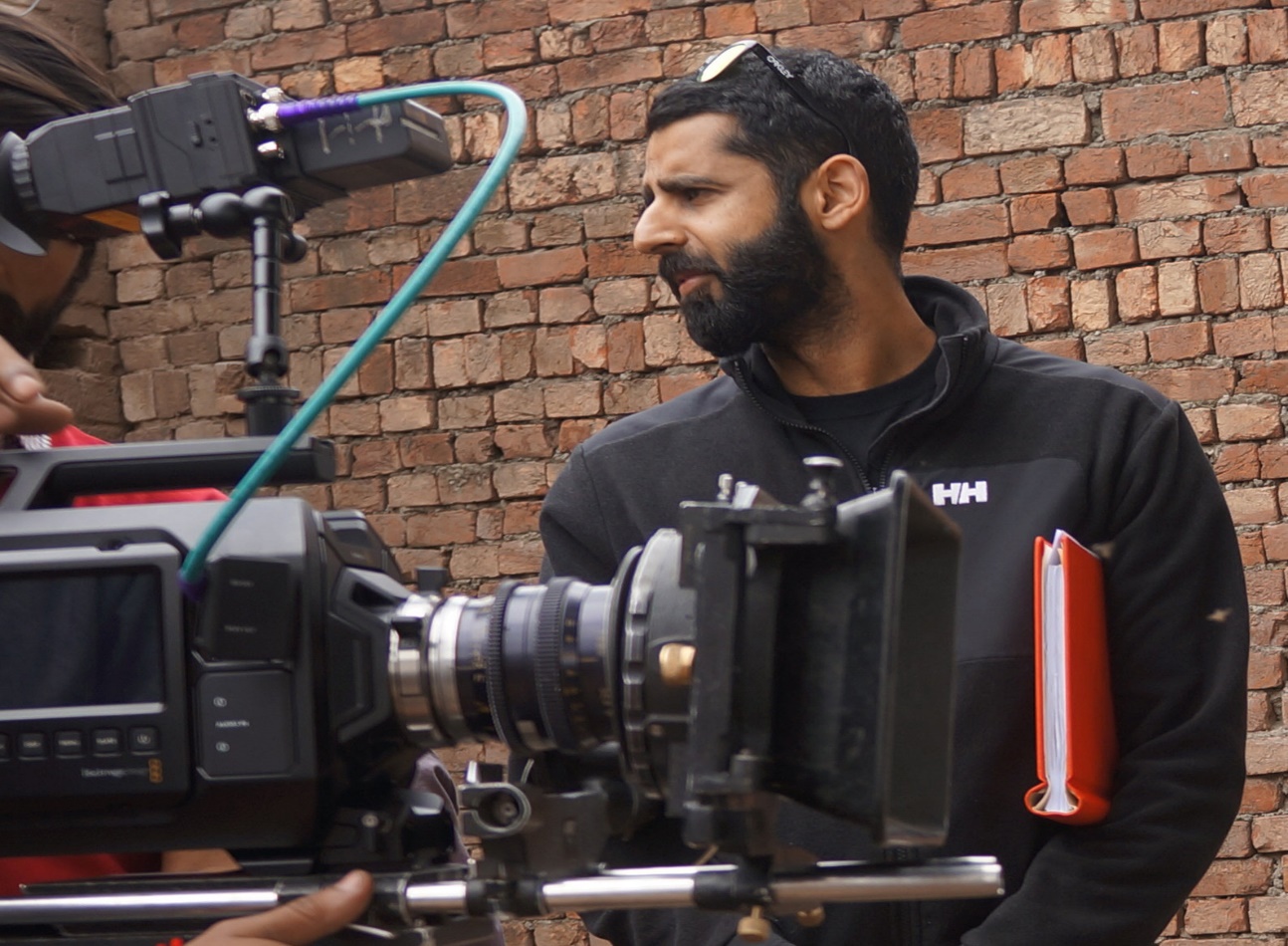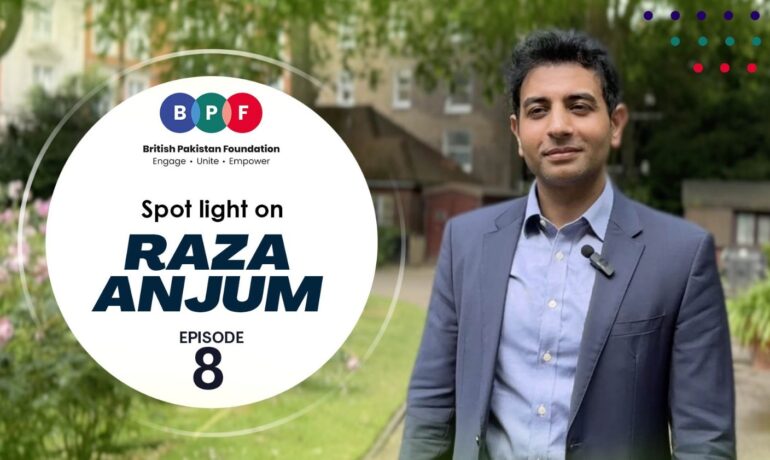Spotlight on Sarmad Masud
This Fall BPF got up close and personal in an exclusive interview with the unparalleled and talented film-maker, writer and director Sarmad Masud. His monumental feature film, ‘My Pure Land’ was the first British Pakistani feature film to be nominated for an Oscar in that category. He opens up about where his inspirations lie and talks about his muse. We get a deeper perspective behind his achievements and what it took for him to employ considerable ingenuity in the making of this film.
Our best wishes to Sarmad for his upcoming ventures!
What was the inspiration behind your film?
It is based on an extraordinary true story, so the real inspiration is Nazo Dharejo, upon whom the film is based. I randomly came across an article about her online, I was immediately impressed by her strength and courage and felt it could make a really inspiring story.
How did you end up in film-making?
Purely by chance. I had studied a pre-degree art and design foundation course and then fell into a film and TV course in Hull. At the time, I knew nothing about how films were made, I actually thought all films were made in one shot! But after three years of working really hard on learning my craft, watching and studying everything film related, I was actually the only one in my class to graduate with a First.
What are your hobbies other than film-making?
I used to love drawing when I was younger, that I guess evolved into film-making. I have also had a passion for music and collected vinyl records for most of my life. I am also a big sports fan. I don’t play as much as I used to but I love playing cricket and football and watching both too.
How does it feel to represent your country internationally?
It feels crazy and great. It has been such an emotional roller coaster with this film, if I think back to being in a dusty field in Pakistan in 40 degrees. We are doing our best to make a lot of people proud and I hope I can also use it as an opportunity to inadvertently thank so many of the people who have helped and supported me along the way. Without their support, I never could have got to where I am today or dreamt of our film being associated with the Oscars!
What message would you send to all the aspiring British Pakistani film-makers?
Get out there and make more stuff. You can really learn by doing if you care about a story and want to share it then do all you can to get it made. I am sure it would not surprise you if I told you the amount of people I approached when I was started out to make this film. They all said no! You can’t allow those rejections to be the reason you don’t pursue your dream. I believe if you are passionate about something it makes hard work easy because you enjoy what you do. That passion will also inspire others along the way who will surprise you with their generosity and support and they too will come along with you on the journey.
If you could have done anything differently in this film, what would it be?
Tough question. I think you should leave a film with enough regrets to want to do a better job next time around. The decisions I made on this film were made under certain extreme circumstances, I am certainly self-critical but I would like to keep most of those things I would have done differently to myself!
If you were not a film-maker, what would you choose as a career?
I would happily be a stand up comic, not sure how much money I would earn though… I do like the idea of helping people in some way. I have been working for Muslim Hands in their video department, that is a great way for me to use my film-making powers for good.
What is your favourite part of your profession?
I love the shoot. I am also fortunate to meet and deal with a variety of people from all sorts of backgrounds and nationalities. I also try to create a united team. Maybe it goes back to me being a sports fan, but I like the idea of “Where we go one, we go
Why did you choose to highlight Pakistani culture and heritage in your film?
I have had a number of projects in development over a long period of time, it just so happened that this Pakistan based film turned out to be my first film. I did, however, feel very strongly that we film our story in Pakistan despite some people advising us for security reasons to film in India or Morocco to replicate Pakistan. It was always important to me to film in Pakistan, our film title (Meeri Paak Zameen) is a play on the word Pakistan so it was important for the people behind, in front and the soil below our feet to be Pakistani, I knew that would somehow inform the film we were trying to make and isn’t something you can artificially recreate. I also felt the film could be a great opportunity to showcase and celebrate the talent within Pakistan.
What genres of movies intrigue you the most?
I would say I have an eclectic taste, I am more than happy to sit through pretty much all genres, my wife isn’t a fan of Horror films so we don’t tend to watch many of those!
We know of your innumerable achievements, but how do you deal with failure?
I think over time you just learn to take the failures and rejections on the chin, you have to maintain perspective and just keep moving forward, I am constantly shifting my goal posts which is a great way to keep motivated and not to get caught up in the negativity of the failures. The plan is long term – to have a sustainable career, it is not simply to be king for a night.
Where do you see yourself 10 years from now?
Good question. Our own house with a garden would be nice … I would like to have made 2 more films by then, and managed to work more in TV, either in the UK or abroad.
How is “My Pure Land” different from “Two Dosas” to you as a film-maker?
In terms of tone, they are both very different, “Two Dosas” is an all singing and all dancing laugh out loud comedy. While “My Pure Land” is a long-form drama/thriller. The shoot for “Two Dosas” took 3 days in comparison to “My Pure Land” which took 30 days. The energy levels and scale of the production on a feature are so much more demanding on you as a film-maker.
Did you have to put more of an effort for one compared to the other?
Certainly. I think it is just a case of more sustained effort over a longer period of time. For example, I had the original idea for “My Pure Land” in 2013, and it arrived in cinemas in 2017. Whilst, “Two Dosas” – we had the idea in Jan 2014 and it screened at London Film Festival in Oct 2014.
How does the jump from short films to your first debut film feel?
It feels good to have finally done it. I think film-making is full of contradictions, I kind of wanted to make my first film and learn from it and then move on and make my second and third. So in a way I don’t want to be too precious about it, however, there is also a part of me that is painfully aware of the fact that this film currently (and for the past 4 years) has meant the world to me. I have put a lot of blood, sweat and tears into it, I am not sure if I will ever make a film which is as personal.
What are you more comfortable making?
I think give me a camera, some actors and a script and I am happy. Whether it is a short or a feature or a TV drama, the machine changes but the mechanics are the same.




